Description
- Quasar 4:28idnt mind [3:23]
- Nurse robot 3:22 dream [3:19]
- Flut e qencer: the knight songs [9:58]
- a. duel 2:21ws just begun [3:26]
- b. lamentation [4:03]
- c. conjuration 1:26 theme songs [9:58]
- d. rebirth [1:37]
- Flut e sizer [3:31]
- Didnt notice, didnt mind [3:23]
- Nothing but your dream [3:19]
- Just a part [3:31]
- When the shows just begun [3:26]
- Bonustrack:
- Collected jingles & theme songs [9:58]
Reissue of this great album from the 80’s
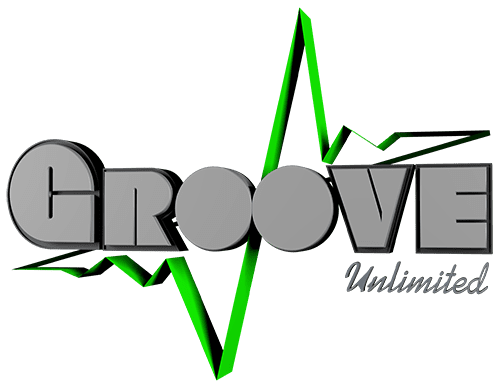
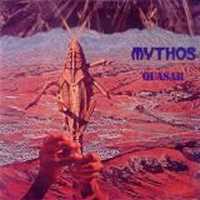
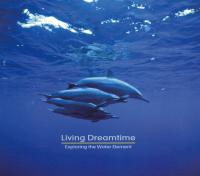
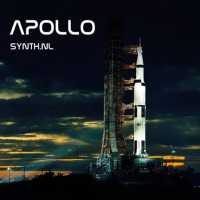
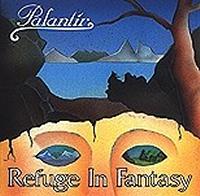
Jorge Sergio / articmist.org –
El nacimiento de la msica electrnica que an es conocida como Escuela de Berln y el krautrock alemn nacieron casi de la mano, ntimamente ligados, a finales de los aos 60. El desarrollo posterior de ambos estilos durante los aos 70 deriv en muchos casos en una interesante mezcla de rock experimental (quizs tambin podemos hablar de progresivo) y electrnica basada en sintetizadores y secuenciadores, adems de los instrumentos propios del rock britnico, provocando una corriente musical y cultural con centro visible en Berln. Stephan Kaske empez a desarrollar sus ideas musicales precisamente en esa poca y en esa ciudad, y es aceptado como uno de los pioneros de ese ambos gneros musicales. A travs de su proyecto llamado Mythos, en el que utilizaba sintetizadores, secuenciadores , vocoders, mellotron y percusiones electrnicas, adems de su propia voz, guitarras elctricas y flauta, Kaske comenz una larga trayectoria musical que llega hasta hoy. Mythos comenz en 1972 como un grupo, en el que otros msicos acompaaban al berlins, pero finalmente deriv en un proyecto unipersonal con una amplia produccin musical y bajo distintos seudnimos artsticos.
Como ya he comentado, el krautrock y la msica electrnica estilo Escuela de Berln pueden ser considerados (por qu no…?) como gneros musicales propios. Ambas corrientes musicales tienen actualmente una mnima parte del peso que tuvieron en su poca de esplendor, pero cualquier disco publicado en esa poca tiene su inters en nuestros das. Quasar fue publicado originalmente por Sky Records en 1980 y en l se puede apreciar una mezcla de los mencionados estilos. Kaske siempre ha centrado su composicin musical en los teclados y sintetizadores, pero sus trabajos publicados durante los aos 70 estn fuertemente influenciados por el krautrock. De hecho, al tratarse de un trabajo publicado muy a principios de los 80, podemos decir que pertenece , en realidad, a una poca tarda, lo que provoca una escucha ms comprensible para los no iniciados en el krautrock… Afortunadamente acaba de ser re-editado en Cd por Sireena Records (hay que tener en cuenta que la mayora de esto s trabajos fueron publicados originalmente slo en LP) de modo que ahora podemos escuchar este trabajo con calidad digital, en un Cd digipack con libreto interior que incluye interesantes notas y fotos adems de un bonus track titulado Collected Singles & Theme Songs y que es, en realidad una mezcla de jingles, msica para cine, radio y TV compuestos durante los 70 y 80, en este caso todos ellos puramente electrnicos.
En lo musical, hay temas claramente electrnicos (Quasar) y otros muy caractersticos del krautrock (Nurse Robot, Didn’t Notice, Didn’t Mind, Nothing but your Dream) por incluir voz (la del propio Kaske) y guitarras elctricas o flauta (que es una caracterstica propia de Stephan Kaske)… Los temas 3, 4, 5, 6 conforman una especie de suite, de 4 partes con pasajes con vocoder y un leitmotiv en forma de meloda que se repite en varios de los cortes del disco, instrumentada en estilos diferentes. Flut-e-sizer es un tema especialmente dinmico que combina vocoder, secuenciador y flauta sobre un ritmo groovy que suena muy analgico.
2012. Jorge Sergio / articmist.org
Sylvain Lupari / gutsofdarkness.com & synth&sequences.com –
After the making Superkraut Live 1976, Sireena Records dusts this time a pivotal work in the evolution of Mythos. Quasar is the transitory album of Mythos. Its Stephan Kaske’s first solo album and the first album where Mythos transcends its Krautrock roots to embrace the paths of EM. Making it, Quasar is a very good mixture of heavy and tortuous progressive rock and EM to Teutonic flavor which is strongly influenced by the pulsating and technod rhythms of Kraftwerk, as well as their vocoders of robots with a cold. It is little as if Jethro Tull fell in the robotic keyboards and percussions of the Dsseldorf quartet. To say the least, its in this way that the title-track harpoons our ears.
Crystal clear keys fall as snowflakes on an evening of Christmas to introduce the bouncy rhythm of Quasar”. The rhythm is nervous and skips in a feverish movement of staccato while a flute is kissing this rhythm with passion
Morpheus Music (GB) –
STYLE
Progressive electronica and synth rock.Mythos hereby continue their ongoing re-releasing of classic albums. Quasar, originally delivered back in 1980, is something of a Janus album: looking backward it recalls the progressive rock roots of the band – Tull-like flutes, dramatic Krautrock moogs and ambitious melodic structures; looking forward it hints at the synth-pop explosion that was to dominate a lot of early eighties music. Berlin school music as well as much of the popular rock output was undergoing swift change at this time and Mythos seem to capture the whole spectrum of that change here on Quasar. There are some fairly heavy sections where chugging rhythms and live drums propel earnest male vocals and zappy, squirting leads. Other tracks have a Teutonic grandeur, focussing the lengthy pomp of the seventies into brief three-four minute tracks. Electro-beats of programmed percussion running in tandem with sequencer patterns form the back bone of other recordings.
ARTWORK
Quasar has been lovingly repackaged into a sharp digipack of two panels with a generous sixteen page booklet insert. The outer cover presents the artwork from the SKY Records vinyl original: the brittle form of a huge insect held aloft upon a backdrop of strikingly red craggy hills and distant settlements. The rear cover holds a tracklist with times alongside. Within, a studio shot under twin lighting umbrellas hides behind the booklet; a simple logo on black ground to the right. The booklet holds a fascinating collection of performance photographs and gear shots that nicely reveal something of the musical environment of the band. There is also a lengthy explanation in both German and English of how the album came about. Details are revealed of the recording challenges of the time and the choices facing a band with personnel concerns and an exploding array of new technological options.
OVERALL
Quasar was released originally via Hamburg label Sky Records at a turning point for Mythos – the third line-up was approaching its end with a couple of vinyl albums under their belt – a plethora of novel kit items was opening up – musical styles were rapidly evolving. The 1980 release of this follow-up to the previous year’s Concrete City straddles this period of flux. Mythos main man Stephan Kaske began with a seasoned touring band and concluded as pretty much a one-man outfit producing the new album with studio musicians. There are eleven tracks here from the original release, most a little under or over the four minute mark – pithy concentrates and brief gutsy statements as opposed to the lengthy extravaganzas of the previous decade. The album concludes with an almost ten minute montage of Mythos radio, TV and film music jingles. This record is one of the few Mythos creations that has thus far eluded re-release (along with 1981’s Grand Prix) – catch it now restored to its for mer glory.
2012. Morpheus Music (GB)
Wolfgang Kabsch / Germany –
Nachdem im letzten Jahr durch Sireena erstmals verffentlichten Super-Kraut-Live Schmankerl der Krautlegende um Stephan Kaske Namens Mythos reicht das Label noch zwei weitere solche nach. Mit den beiden Alben von 1980 und 1981, beide verffentlicht auf dem Skylabel kommen die einzigen Alben, die bisher noch nicht auf CD aufgelegt wurden, zu Ihren Ehren. Den Anfang macht das 1980er Werk Quasar.
Dieses stellte auch einen Bruch in der Bandhistorie dar. War es bis dahin tatschlich immer eine Band, die musizierte (besonders schn auf demoben erwhnten Livealbum zu hren), lste diese sich 1979 auf und Mastermind Stephan Kaske entschied sich auf Grund der neuen zur Verfgung stehenden Technik, alleine weiter zu machen. Dies hatte natrlich auch wesentlichen Einfluss auf die erzeugte Musik. Diese wurde nun stark elektronisch geprgt und ging ein groes Stck mit der durchaus rockigen Vergangenheit auf Distanz. Im aufhrlichen Booklet beschreibt Stephan Kaske sehr schn die aufwendige Arbeitsweise, in der das Album entstand.Und Quasar ist ein durchaus wichtiges Tondokument. Es enthlt natrlich noch die Krautrockige Flte und auch einige tolle Gitarrenparts, die Elektronik jedoch weist den Weg ebenso in die Achtzieger (viele Sounds erinnern an das, was viele New Wave und Neue Deutsche Welle Bands spter populr machten) wie auf die Alben der Kollegen Tangerine Dream und Kraftwerk, die zur selben Zeit entstanden.So rattern die Sequenzer eckig und zickig, die elektronischen Bsse treiben die Musik voran und darber liegen mystisch anmutende Keyboardflchen und ebensolche Gitarrenspuren. Eigentlich eine reine Instrumentalmusik, jedoch wurde auf einigen Tracks mit einem Vocoder Gesang darber gelegt, was die Sache sehr seltsam (und manchmal auch ein wenig daneben) klingen lsst. Es entstand trotzdem eine gut hrbare Scheibe an der Schnittmenge zwischen Krautrock / Jazzrock und (damals) modernster Elektronik. Womit sie jedoch leider eben so zwischen den Sthlen saen, das der groe Erfolg ausblieb. Das hinderte die Band, explizit Stephan Kaske nicht, weitere Musik in dieser Richtung zu produzieren. Der Bonustrack zeigt mit Soundschnipseln von Film- und Fernsehmelodien auf, womit er schlussendlich seine Brtchen verdient hat und auch heute noch verdient.
Ein sehr interessantes und gutes Album welches hiermit in typischer Sireena Qualitt vor dem Vergessen gerettet wurde. Ich freue mich schon auf das 2. Album.
2012. Wolfgang Kabsch / Germany